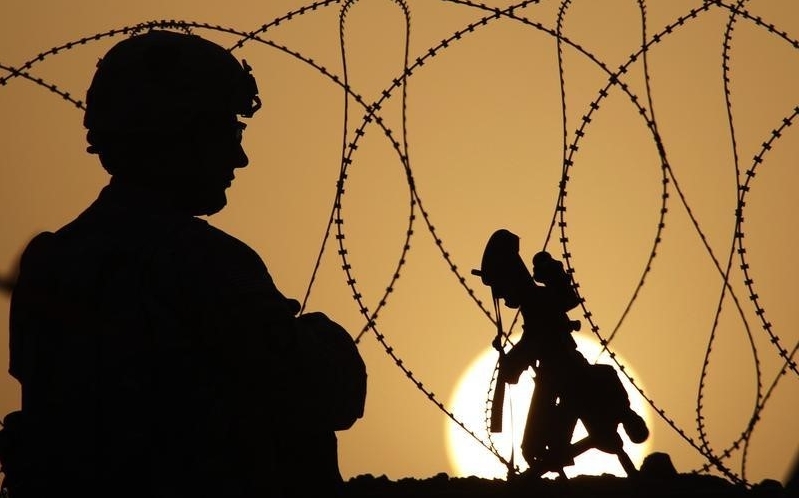
U.S. military veterans make up about 10 percent of inmates on death row and courts are not doing enough to consider post traumatic stress disorder (PTSD) as a mitigating factor in sentencing, a study released on Tuesday said.
About 300 of the roughly 3,000 inmates on America's state and federal death rows are military veterans and the majority suffers PTSD from serving in the Korean, Vietnam and Gulf wars, according to the study from the Death Penalty Information Center, which is opposed to capital punishment but whose data is used by those on both sides of the debate. The study was based on data from states holding half the U.S. death row population.
Defense lawyers frequently fail to realize when their client is a veteran, according to the report's author, Richard Dieter.
"If you have intellectual disabilities you can't get the death penalty, if you're under 18 you can't get the death penalty. With PTSD, you can get the death penalty and sometimes it can be used against you," Dieter said.
Dieter hopes his report will trigger closer scrutiny of how the death penalty is used against veterans.
Neither the Defense Department nor the Justice Department's Bureau of Justice Statistics track veterans on death row.
About 31 percent of Vietnam War veterans and 10 percent of Gulf War veterans suffer from PTSD, according to the National Institutes of Health.
Joe D'Ambrosio was in the process of re-enlisting in the U.S. Army in 1988 when he was arrested and wrongfully convicted of murder in Ohio, joining many other veterans on death row.
"There I was, willing to give my life for this country, and they took every single right I had," said D'Ambrosio, 54, who was exonerated in 2012.
Death sentences and executions have decreased substantially in the United States over the past 15 years, with just 73 death sentences handed down in 2014: the lowest number in the four decades since the Supreme Court reinstated the death penalty.
The decline is due in part to the high costs of trial and appeals, with prosecutors in several states steering clear of cases where mental illness may be a factor because of the likelihood of a lengthy and expensive legal process.
In 2009, the U.S. Supreme Court overturned the death sentence of a Korean War veteran who killed an ex-girlfriend and her boyfriend, finding his attorney deficient for not investigating the veteran's combat service and mental illness.
But Georgia this year executed a Vietnam War veteran who qualified for 100 percent disability due to PTSD, Dieter said.






